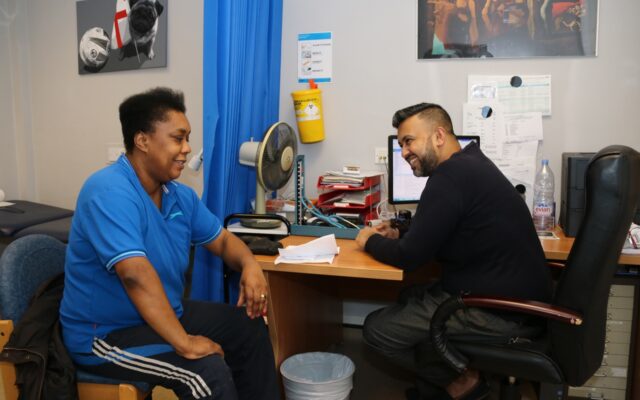Medical ethics are, at heart, simple. The duty of a doctor is to try to prevent death, make people who are ill better, treat patients well and do no harm.
British doctors are legally bound by an ethical code devised by their professional regulator, the General Medical Council (GMC), in which the basic commands of “do good” and “cause no harm” loom large. It all appears straightforward. Yet we know that complex medical issues often arise, and what constitutes “good” and what constitutes “harm” can be contentious areas. The area of medical ethics applied to people with learning disabilities is no exception.
Readers of this magazine will know there have been a series of tragedies involving people with learning disabilities in the UK health system. At heart, most of these have arisen not from systemic organisational problems, accidents or incompetence but from ethical failings. The list is long and includes preventable deaths arising from inappropriate treatment, “do not resuscitate” notices routinely applied to young patients with learning disabilities, neglect on wards and harmful use of medication.
We can add to these a series of recent and current abuse scandals in assessment and treatment units (provided by the NHS or by private or charitable bodies) and decades of neglect and abuse of people with learning disabilities in long-stay hospitals managed by the NHS after its formation in 1948 through to the 1990s. However much of a boon the universal, free-to-use NHS has been for the population as a whole, for those with learning disabilities it has too often been an ethical disaster zone.
Why is this so, and why have many people with learning disabilities not been subject to the simple dictum that doctors should seek to do them good and strive to do them no harm?
Silent about learning disability
The GMC’s current Good Medical Practice guidelines, published in 2013, are reticent regarding disability as a whole, and silent about learning disability altogether. Their only specific reference to disability (note 60) states: “You must consider and respond to the needs of disabled patients and make reasonable adjustments … so they can receive care to meet their needs.”

They note these are not just physical adjustments but also relate to a person’s communication and other needs. From here, doctors are then referred to a rather vague section (25b) of the guidelines, which states: “If patients are put at risk because of inadequate resources… you should put it right if possible.”
Ethical training for doctors in relation to learning disability is also lacking, although battling parents whose sons died prematurely in NHS care are working incredibly hard to change this. A leading 2020 textbook used in UK medical schools, Medical Ethics and Law: a Curriculum for the 21st Century, contains only one reference of any significance to learning disability in its 357 pages.
This refers to the impact of cognitive impairment on decision-making capacity and states “most healthy people without learning disability have the capacity to make decisions about their own healthcare and to understand the main points at issue” (page 103). The assumption appears to be that healthy people with a learning disability do not have the capacity to make decisions about or understand their own healthcare.
There is no other reference to learning disability in this entire book. An ethical guidance vacuum of this sort leaves doctors in a position where they make their own decisions based on their instincts, beleifs or unconscious biases.
The absence of specific ethical guidance about learning disability, a general paucity of guidance about disability as a whole and a poor track record of safe healthcare for people with learning disabilities all came to a head in the early days of the coronavirus pandemic health crisis in 2020.
Who is first in line for care?
News items showed exhausted Italian and Spanish doctors having to make heart-breaking decisions about who should receive treatment and who not as coronavirus surged through their countries. If two people required critical care, and there was only one ventilator, who should live and who should be left to die? As the virus entered the UK and threatened to overwhelm the NHS, the medical profession prepared itself for the horrendous task of making similar decisions.
The NHS stated that, in cases of excess demand, critical life-saving treatment would be prioritised for those most likely to survive. This involved a cluster of factors including age and pre-existing conditions. It implied that, in the event of a treatment decision having to be made, a young person with no pre-existing health conditions would be given priority over a young person with such a problem. This was enough to cause concern among people with disabilities as a whole and for people with learning disabilities in particular, given the chequered history of the NHS in its treatment of disabled people.
Disability Rights UK issued a statement in April signed by hundreds of disability organisations and their allies, including many learning disability bodies. The concern was that the simple fact of being designated disabled would be sufficient grounds for withholding treatment, irrespective of an individual’s general health and survival chances.
The statement called for all NHS staff to be guided by certain principles: that treatment decisions should not be influenced by how disabled people are valued by wider society; existing health conditions unrelated to survival chances should not figure in treatment decisions; and being in receipt of social care and having support needs should not make health staff think that an individual would not benefit from treatment.
The statement also called for people with disabilities and their advocates to be involved in their own treatment decisions.
Doctors on the defence
This alarmed doctors’ trade union the British Medical Association (BMA) enough to rush out a statement that emphasised “neither age nor disability are in themselves relevant criteria for making decisions about treatment”.

The statement acknowledged that at some point demand for lifesaving treatment might outstrip the supply of available resources, in which case very difficult decisions would have to be made. Nonetheless, the BMA emphasised that its Covid-19 – Ethical Issues. A Guidance Note states “someone with a disability should not have that disability used by itself as a reason to withhold treatments”.
However, it added: “Where the consequences of… a pre-existing disability… mean that the patient is significantly less likely to survive this complex and demanding treatment, then it becomes a relevant factor.”
The original ethics guidance note itself, which the BMA had felt compelled to clarify, emphasises that some health professionals may, during this crisis, be obliged to withdraw treatment from some patients to enable treatment of others who are more likely to survive, and that it is lawful and ethical for doctors to refuse potentially life-saving treatment in such situations.
The presence of “comorbidities” (more than one illness or condition occurring in one person at the same time) “may exclude individuals from eligibility”, even if treatment for Covid-19 had already started.
The overall aim of the medical profession throughout the crisis, the BMA guidance document stated, would be on “delivering the greatest medical benefit to the greatest number of people”.
No explanation for rise in deaths
We are yet to know the full health impact of the pandemic and of medical practice during it on people with learning disabilities. It may be some time before we have a clear picture.
A report from Public Health England in November found that, between February and June, the overall number of deaths of people with learning disabilities were 2.3 times higher than they had been a year previously. As yet, there is no detailed explanation of what caused that spike.
The Care Quality Commission was recently asked to review the use of “do not attempt cardiopulmonary resuscitation” decisions within all groups during the pandemic. It will be some time before that report is published.
However, whatever the CQC finds, the alarm that the BMA guidance raised among people with learning disabilities and their families and supporters was not something that suddenly erupted in 2020 because of the pandemic.
It was deeply rooted in years of mistrust of the value that the medical establishment places on the lives of people with learning disabilities. Both the law and ethical practice within medicine afford numerous examples of a lower value being placed on the life of a learning-disabled person than on the lives of others.
UK abortion law allows termination of an abnormal foetus, such as one with Down syndrome, until the last day of pregnancy. The ongoing scandal of unjust long-term incarceration of more than 2,000 people with learning disabilities in assessment and treatment institutions, often with abusive consequences, is a medically led scandal and it is the Department of Health and Social Care and its previous incarnations that have manifestly failed to tackle the situation.
The litany of ongoing and historical scandals demonstrate why there is such a deficit of trust in the medical profession on the part of people with learning disabilities and their families. Of course there are many first-rate, supportive and empathetic clinicians. But there are also those who are not and, as an entity, the medical profession has always had and still has an uneasy relationship with the learning-disable d community.
These ethical failings by the medical profession, which have disturbing and sometimes devastating real-life consequences for people with learning disabilities and their families, have to be addressed and rectified. This is not a simple matter of rewriting some guidelines. It will involve a cultural attitude change across the profession and the NHS at every level.
To achieve this, we will first need to understand why people with learning disabilities so often disappear into an ethical black hole when they encounter the world of medicine.
To find the origins of this ethical problem, we will need to search the past and understand how it still forms and drives the opinions of thinkers who shape ethical policy and practice today. That will be the subject of the second article in this series in the next issue.




